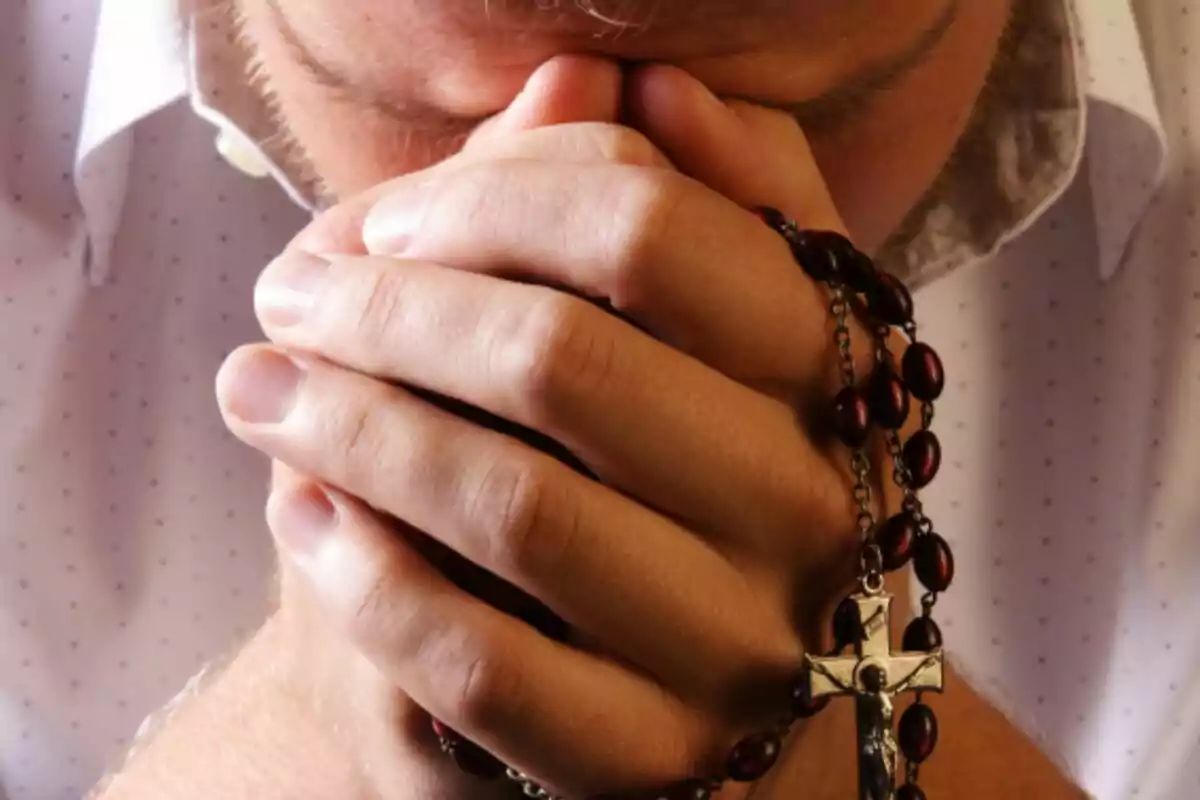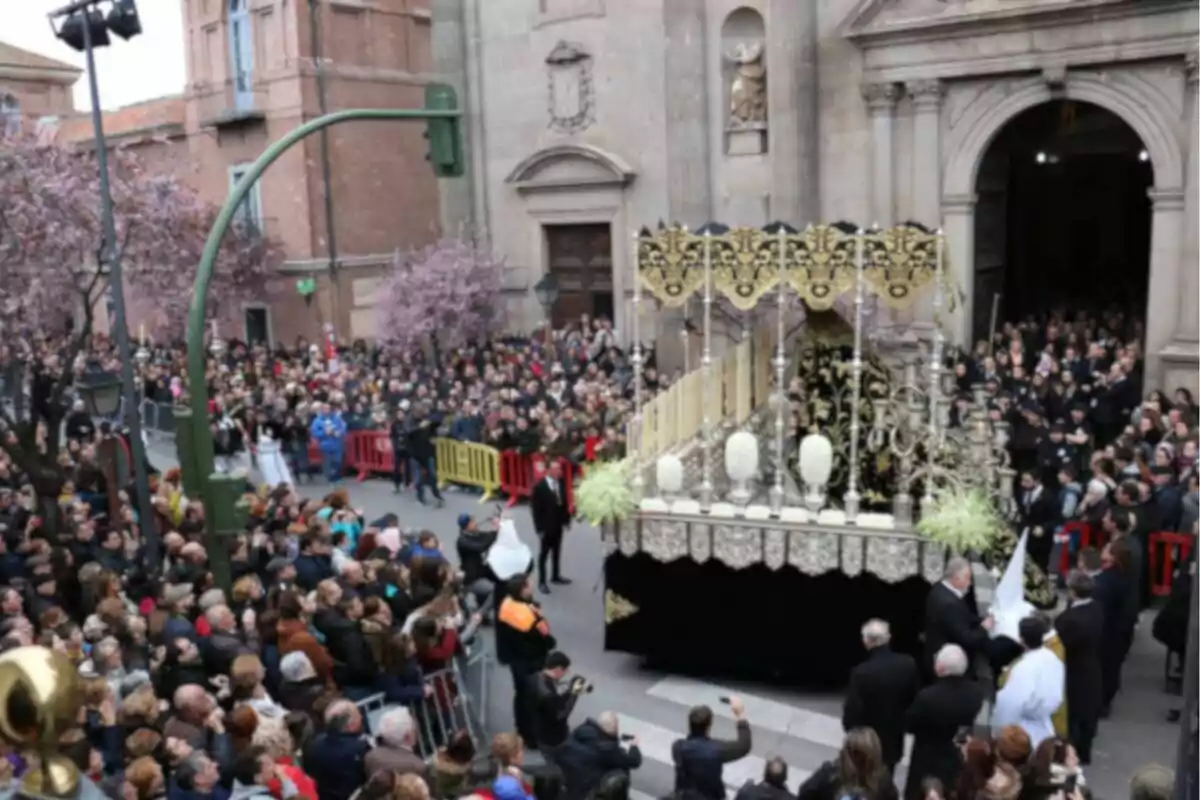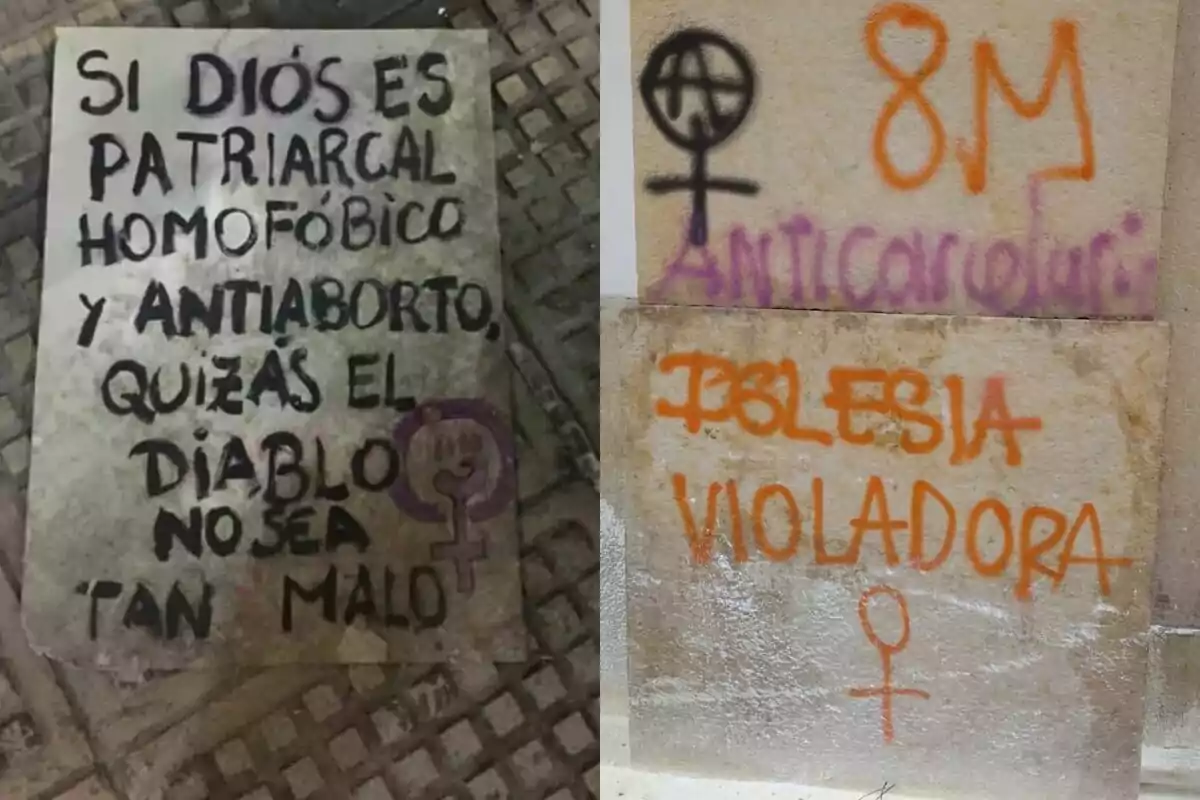
Spain Leads the Rise of Christianophobia in Europe: More and More Attacks
Last year, 70 hate crimes were reported and attacks on churches and holy places increased
These days Easter is celebrated in Spain, one of the most significant holidays in the Catholic calendar. The data indicate that there are fewer and fewer believers in Spain, but also that it is one of the places in Europe where Christians are most persecuted. These are data that warn of a loss of religious freedoms, which contrasts with the overprotection of other religions by public authorities.
It is undeniable that there is an increase in Christianophobia in Spain. Last year, seventy hate crimes and multiple acts of vandalism against churches and holy places were reported. One of the most common attacks is graffiti on church facades, such as "the church that best illuminates is the one that burns."

It is also common to see how year after year, disrespect toward Christians during Holy Week increases. Although not all, most of these attacks come from the left and the far-left. They are the same sectors that accuse any attack against the Islamic religion and its prophet of "Islamophobia."
Moreover, the attacks on Holy Week not only offend Catholics but also many Spaniards who, without being believers, see it as a cultural and identity trait. The processions are part of Spanish tradition. The attacks on Holy Week stem not only from hatred of Christianity but also from hatred of Spain.
Christians, Outcasts in Their Own Countries
Spain is not an isolated case. The Observatory on Intolerance and Discrimination against Christians in Europe reveals a worrying increase in the persecution of Christians on the European continent. Last year, reports of physical violence, threats, and attempted murder of Christians in several countries multiplied.
Between 2022 and 2023, 749 hate crimes against Christianity were reported in 30 European countries. There were 38 physical assaults, and three Christians died as victims of direct attacks for religious reasons. The statistics do not include jihadist attacks, which have also multiplied since October 2023.
Spain leads alongside France, Germany, and Italy in figures of Christianophobia. One of the most vulnerable groups is that of Muslims who have converted to Christianity. They not only suffer marginalization from their communities but also media silence.
But the attacks are not limited to physical violence. The cuts in freedom of expression and the proliferation of gender ideology have increased the stigmatization of Catholic believers. Many Christians are repressed for professing their faith or following their beliefs.

More than 380 million Christians worldwide suffer persecution and discrimination, and one in seven Christians in the world is persecuted. More than 4,000 Christians are killed each year, and more than 7,679 churches are attacked.
Violence Without Punishment and Complicity
Studies also show impunity on the part of the aggressors, who are usually groups especially protected by public authorities. The media contribute to this, either by remaining silent or by collaborating in the demonization of the Catholic religion. These days we have seen how some media in Catalonia linked the Catholic religion with the far-right.
In Spain, especially in Catalonia, there is a double process. On one hand, the overprotection of Islam, and on the other, the discrediting of native religious and cultural traditions. There is a growing sense that there is a programd cultural replacement.
This is reflected in the Catalan government's connivance toward Islamic festivities and the disdain for local traditions. They congratulate Ramadan but forget about Holy Week, and instead of saying Christmas, they say "winter solstice."
More posts: